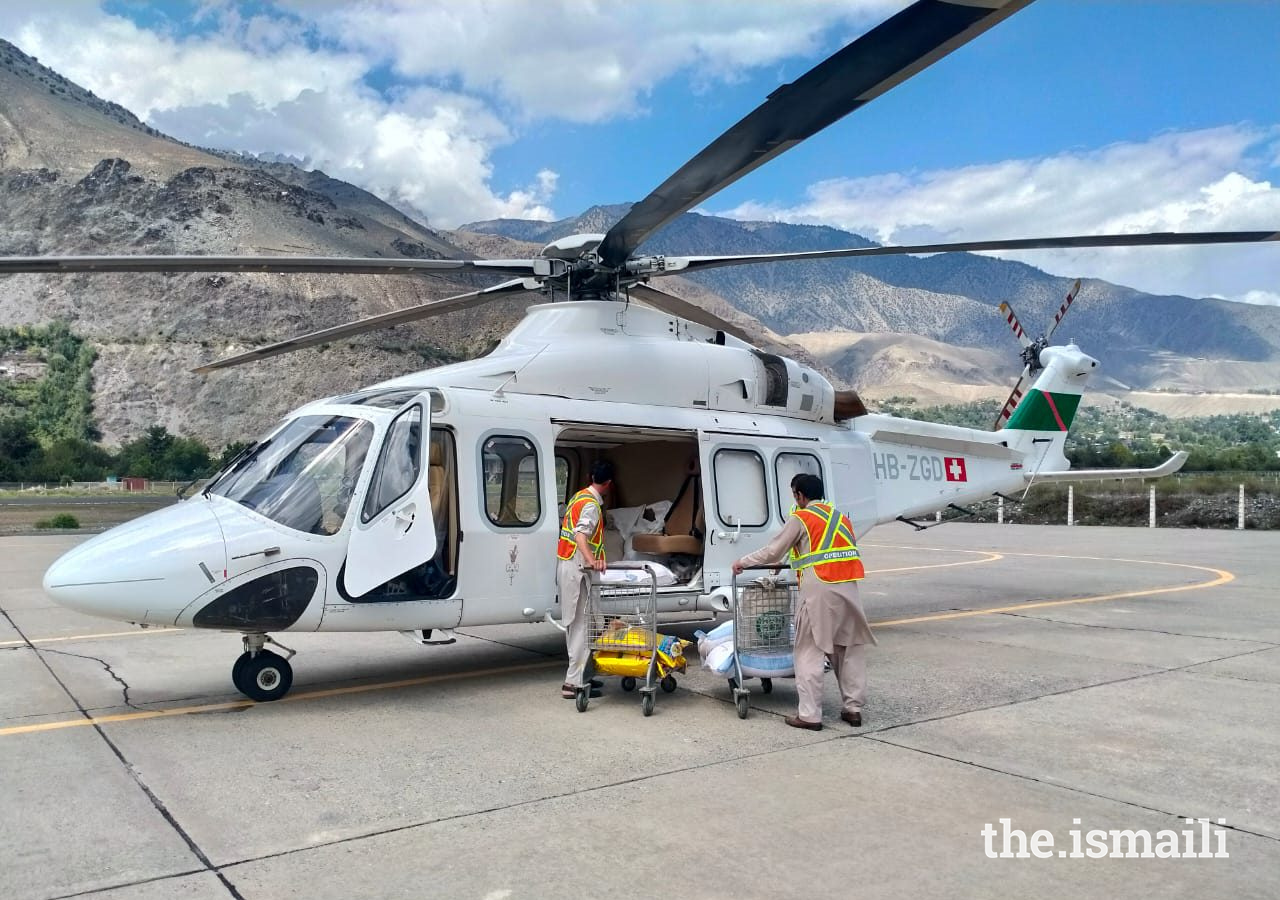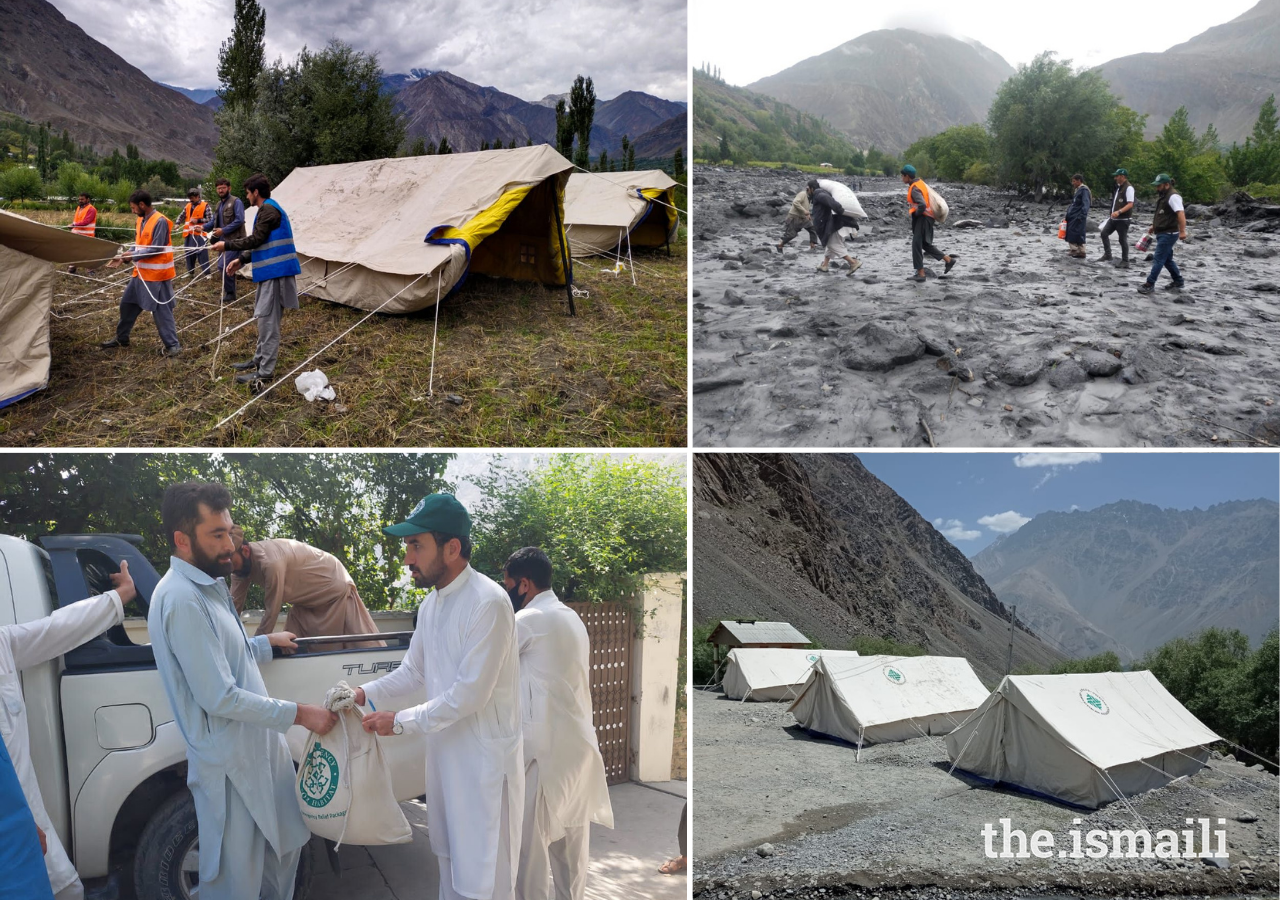A combination of rising sea surface temperatures and heatwaves over recent weeks have brought heavy rainfall across much of Pakistan, which is located in one of the most rapidly warming regions on Earth. Communities have experienced severe flooding in Karachi and other parts of the country. Tens of thousands of people have fled their homes and more than 1,000 people have died due to the floods since June.
In the North, the heatwaves have also caused glacier melt and river levels are still rising. Though the communities in this mountainous region have long dealt with increased risks to natural hazards, this summer the multiplier effect of a warming climate is particularly alarming. Since June 160 incidents have been reported in Gilgit-Baltistan and Chitral.
When floods strike, drowning is only one of many threats. The lack of food and shelter, combined with sewage and waterborne diseases, are a significant concern. The destruction of homes, crops, livestock, schools, hospitals and transport infrastructure is set to cause longer-term difficulty. Over 33 million people have been affected – one in eight of Pakistan’s population.
The Aga Khan Development Network (AKDN) has worked in Pakistan since 1905 and has assisted with disaster response efforts for the past 25 years. Its agencies have mobilised to address urgent food, shelter and health needs.
“The Aga Khan Agency for Habitat is assisting the Pakistani authorities in emergency relief operations,” said Hafiz Sherali, President of the Ismaili Council for Pakistan. “The AKDN Helicopter has been deployed to lift and distribute several metric tonnes of food and relief items among stranded families and inaccessible communities in Yarkhun lasht, Power, Shost, Brep and Khuz villages in Chitral.”
The Aga Khan Agency for Habitat (AKAH) has been leading community-based disaster management and response initiatives for the last two decades, establishing early warning and weather monitoring systems, prepositioning emergency stockpiles, training emergency response volunteers, educating communities, and constructing protective walls and other mitigation measures.
At the onset of flooding AKAH rapidly mobilised emergency operation centres in Chitral, Gilgit, Karachi and Islamabad. They have been continuously assessing the situation, providing weather alerts, keeping residents informed and working with the authorities, including the army. The teams have evacuated more than 8,000 people in mountain areas and are providing supplies such as food, medicine and tents, as well as organising safe shelter in schools, community buildings and with host families. They have pumped water out of public buildings and are repairing infrastructure. Read more
“All the early preparation work meant that communities in the northern parts of the country were relatively well prepared for the recent deluge,” said Nusrat Nasab, CEO of AKAH Pakistan. “At the same time, however, such events will likely become more frequent and so we are already working on longer-term climate risk mitigation strategies.”
Habib Bank Limited (HBL) staff have volunteered to distribute ration bags across Balochistan, feeding 10,000 families. The ration bags are able to feed a family of six for at least 25 days. The Aga Khan Fund for Economic Development has a controlling share in HBL, Pakistan’s first and biggest commercial bank.
The Aga Khan University is also part of the ongoing relief efforts. The University has set up healthcare camps and mobile units in affected areas, and is providing medical support, including medication and other resources, to public facilities.
The frequency and intensity of extreme weather is expected to increase due to climate change. Rehabilitation efforts must not only help communities adapt to these growing risks but also combat future climate change, incorporating greener solutions, climate-resilient livelihood initiatives, and longer-term, risk-informed planning.
Read more about AKDN’s environmental commitment.
Donations to Focus Humanitarian Assistance can help to support this ongoing work, and can make a significant positive difference. Those wishing to make a contribution can donate online or contact the following offices:
In Canada:
FOCUS Canada | Donate online
In the UK and Europe:
FOCUS Europe | Donate online
In the United States:
FOCUS USA | Donate online
For other countries, please donate through one of the above offices, or contact AKDN to discuss other international giving options.









